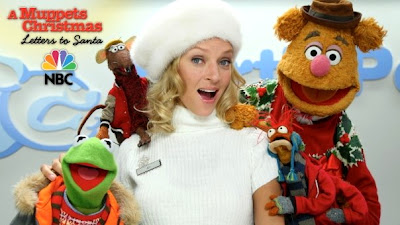Music is essential to our culture. The original stories, passed down through oral traditions, were often told in song and poetry. The rhymes, rhythm, meter, and other poetic tropes helped make longer stories easier to memorize. By setting the stories to music, history would be forever linked with song.
The Fraggle culture is even more dependent on music that we are. They sing every single day. Like our primitive societies, this was one of the only ways to stay entertained, sane, and alive. Think that may seem a bit over-dramatic? Well, consider "The Day the Music Died."
Once every generational cycle, a Fraggle is chosen to write and compose "The Glory Song." This would be the defining song for the whole generation, preserving that group's history. As the current cycle is coming to a close, Gobo is selected to write the Glory Song for the next cycle. Gobo, considering himself to be more of an explorer, and less of the creative type, has trouble concentrating on writing this very important piece. So as to not distract him, all of the other Fraggles refrain from singing until he is ready. And that's when things get dark.
Literally.
All of the light starts to vanish from the cave. The last few remaining specks cry out to the Fraggles for help. These creatures are known as the Ditzies (similar to fireflies) and they are as confused as the Fraggles. All they know is that they are dying rapidly, plunging the Rock into darkness. Without any source of light, the Fraggles start to enter into a permanent sleep stasis.
Gobo and Wembley manage to make their way to the Trash Heap in the well-lit garden to ask for advice. Being as cryptic as usual, she instructs them to "do what they always do."
But that's what got us in this mess in the first place.
Unsure of what to do, Gobo and Wembley head back to the cave to pull the Fraggles out into the light. Unfortunately, Wembley falls fast asleep, and Gobo only has enough strength to lift his guitar. In a vain attempt to keep himself awake, Gobo begins to improvise a song. He calls it "Shine On Me" and with each strum of the strings, a Ditzie flies out of the guitar.
The song restores everyone back to life, with a whole new set of Ditzies lighting the caves. The Fraggles hail this as Gobo's Glory Song and they celebrate to ring in the new cycle.
"Should old acquaintance be forgot and never brought to mind...!"
The Fraggles learned that sometimes a simple, well-intentioned change could destroy years of support and structure within a society. By removing music from the equation, the Fraggles ceased to be. What is the point of having Fraggle Rock without any music in it? The universe has a way of course correcting to ensure that giant populations can get through difficult situations. That's because everything eventually tries to find a balance, a stasis.
For people, we refer to this as our "comfort zone," with a negative connotation. As we ring in the new year, millions of people are making resolutions to change who they are, only to find that in a couple of weeks, they'll still be the same person they always were. This isn't bad. This isn't good. It's just the way life is. Making significant changes can be hard. And there is always a difficult period to get through. And sometimes we find it is beneficial to return to the comfort zone. It's up to you.
Have a wonderful New Year! May you never lose the music, or the light, in your life!
"...should old acquaintance be forgot and auld lang syne!"


























































